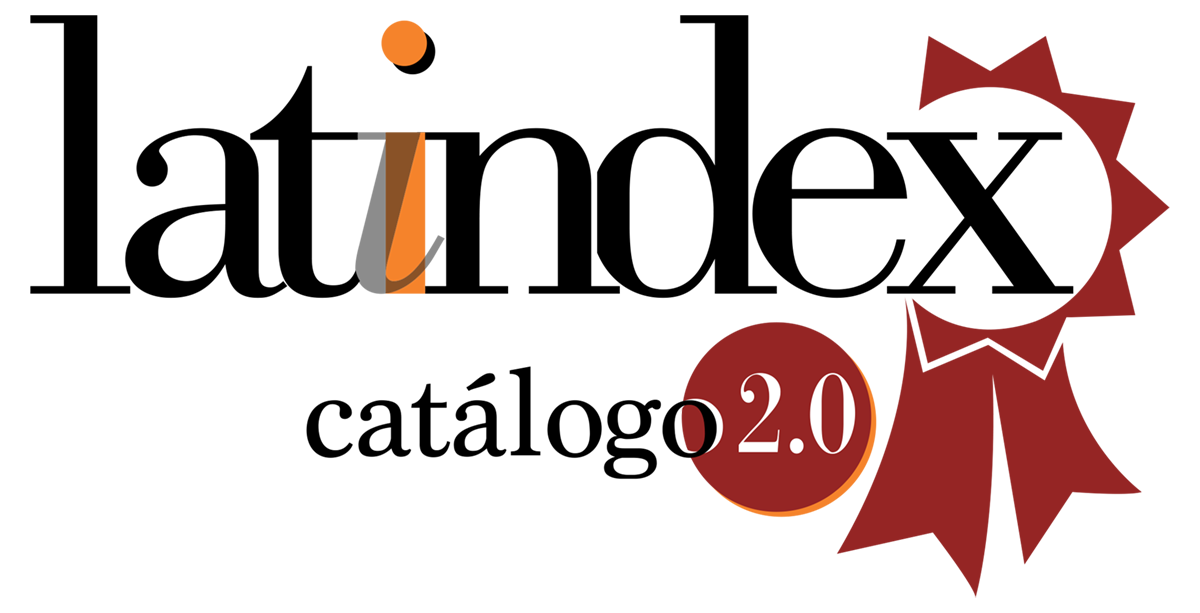Institutional Quality from a Sociological Perspective: Contributions and Challenges
Debate: The Quality of Institutions. An Interdisciplinary Perspective
DOI:
https://doi.org/10.54790/rccs.74Keywords:
Institutional quality, student sociology, Organisations, Institutions, Sociology of development, Organisational cultureAbstract
This article provides a brief overview of the question of research on institutional quality from sociological perspectives. Drawing on the conception of institution inherent to this discipline, two groups of studies have been selected that are useful for understanding how institutional features influence certain aspects of organisations or their aggregates. The first group of studies deal with the overlap of elements of social structure and culture in sectors of activity of countries or territorial areas, particularly in the sociology of development, while the second group of studies focus more on the cultural side of organisations. Although both currents share theoretical assumptions and research interests, they are poorly connected in the literature that studies institutions from the point of view of their social performance. They do, however, offer complementary empirical results. Their comparison provides an approximation of the contributions of sociology to the study of institutional quality, which in turn enables challenges for future research and collaborations with other disciplines to be identified.
Downloads
Metrics
References
Alvesson, M. (2002). Organizational Culture and Performance. En Understanding Organizational Culture (pp. 42-70). London: SAGE Publications. https://doi.org/10.4135/9781446280072.n3
Barney, J. B. (1986). Organizational Culture: Can It Be a Source of Sustained Competitive Advantage? Academy of Management Review, 11(3), 656-665. https://doi.org/10.5465/amr.1986.4306261
Berger, P. y Luckmann, T. (1967). The Social Construction of Reality: A Treatise on the Sociology of Knowledge. Garden City, NY: Doubleday.
Block, F., y Keller, M. R. (2011). State of Innovation. The U.S. Government’s Role in Technology Development. London: Routledge.
Campbell J. (2004). Institutional Change and Globalization. Princeton, NJ: Princeton University Press. https://doi.org/10.1515/9780691216348
Campbell, J. L. y Pedersen, O. K. (2007). The Varieties of Capitalism and Hybrid Success: Denmark in the Global Economy. Comparative Political Studies, 40, 307-332. https://doi.org/10.1177/0010414006286542
Cardús, S. et al. (2004). La mirada del sociólogo. Barcelona: Editorial UOC.
Cavalieri, M. (2016). Inside Institutions of Progressive-Era Social Sciences: The Interdisciplinarity of Economics and Sociology. Journal of Economic Issues, 50(2), 345-361. https://doi.org/10.1080/00213624.2016.1176476
Chibber, V. (2003). Locked in Place: State-Building and Late Industrialization in India. Princeton, NJ: Princeton University Press.
Coman, A. y Bonciu, C. (2016). Organizational Culture in Higher Education: Learning from the Best. European Journal of Social Science Education and Research, 3(1), 135-145. https://doi.org/10.26417/ejser.v6i1.p135-145
Denison, D. R. y Mishra, A. K. (1995). Toward a Theory of Organizational Culture and Effectiveness. Organization Science, 6(2), 204-223. https://doi.org/10.1287/orsc.6.2.204
Denison, D., Nieminen, L. y Kotrba, L. (2011). Diagnosing organizational cultures: A conceptual and empirical review of culture effectiveness surveys. European Journal of Work and Organizational Psychology, 23(1), 145-161. https://doi.org/10.1080/1359432X.2012.713173
DiMaggio, P. J. (1988). Interest and agency in institutional theory. En L. Zucker (Ed.), Institutional patterns and culture (pp. 3-22). Cambridge, MA: Ballinger.
DiMaggio, P. J. y Powell, W. W. (1983). The Iron Cage Revisited: Institutional Isomorphism in Organizational Fields. American Sociological Review, 48, 147-160. https://doi.org/10.2307/2095101
Eisenstadt, S. N. (1980). Cultural orientations, institutional entrepreneurs, and social change: comparative analysis of traditional civilizations. American Journal of Sociology, 85, 840-869. https://doi.org/10.1086/227091
Evans, P. B. (1995). Embedded Autonomy: States and Industrial Transformation. Princeton, NJ: Princeton University Press. https://doi.org/10.1515/9781400821723
Evans, P. B. (2004). Development and institutional change: the pitfalls of monocropping and the potentials of deliberation. Studies in Comparative International Development, 38(4), 30-52. https://doi.org/10.1007/BF02686327
Fernández Esquinas, M. (2023). Editorial: «Buenas y malas instituciones». La cuestión de la calidad institucional en las ciencias sociales. Revista Centra de Ciencias Sociales, 2(2), 117-128. https://doi.org/10.54790/rccs.70
Friedland, R. y Alford, R. R. (1991). Bringing society back in: symbols, practice, and institutional contradictions. En W. Powell y P. DiMaggio (Eds.), The New Institutionalism in Organizational Analysis (pp. 232-263). Chicago: University of Chicago Press.
Georgiou, A. y Arenas, D. (2023). Community in organizational research: a review and an institutional logics perspective. Organization Theory, 4, 1-22. https://doi.org/10.1177/26317877231153189
Giorgi, S., Lockwood, C. y Glynn, M. A. (2015). The Many Faces of Culture: Making Sense of 30 Years of Research on Culture in Organization Studies. The Academy of Management Annals, 9(1), 1-54. https://doi.org/10.5465/19416520.2015.1007645
Hall, P. A. y Gingerich, D. W. (2009). Varieties of Capitalism and Institutional Complementarities in the Political Economy: An Empirical Analysis. British Journal of Political Science, 39, 449-482. https://doi.org/10.1017/S0007123409000672
Hall, P. A. y Soskice, D. (2001). An Introduction to Varieties of Capitalism. En P. A. Hall y D. Soskice (Eds.), Varieties of Capitalism. The Institutional Foundations of Comparative Advantage (pp. 1-68). Oxford: Oxford University Press. https://doi.org/10.1093/0199247757.001.0001
Hartnell, C. A., Yi Ou, A. y Kinichi, A. (2011). Organizational Culture and Organizational Effectiveness: A Meta-Analytic Investigation of the Competing Values Framework’s Theoretical Suppositions. Journal of Applied Psychology, 96(4), 677-694. https://doi.org/10.1037/a0021987
Haveman, H. A. (2022). The Power of Organizations: A New Approach to Organizational Theory. Princeton, NJ: Princeton University Press. https://doi.org/10.23943/princeton/9780691241807.001.0001
Hosftede, G. et al. (1990). Measuring Organizational Cultures: A Qualitative and Quantitative Study Across Twenty Cases. Administrative Science Quarterly, 35, 2, 286-316. https://doi.org/10.2307/2393392
Lapuente, V. y Van de Walle, S. (2020). The effects of new public management on the quality of public services. Governance, 33(3), 461-475. https://doi.org/10.1111/gove.12502
Lawrence, T., Suddaby, R. y Leca, B. (2011). Institutional Work: Refocusing Institutional Studies of Organization. Journal of Management Inquiry, 20(1), 52-58. https://doi.org/10.1177/1056492610387222
Martínez-Sánchez, W. y Gosálbez Pequeño, H. (2023). La calidad de las instituciones del sector público: una revisión crítica de los estudios sobre el «buen gobierno» y la «debilidad institucional». Revista Centra de Ciencias Sociales, 2(2), 167-186. https://doi.org/10.54790/rccs.3
Merton, R. K. (1968). Social Theory and Social Structure. New York: The Free Press.
Meyer, J. W. y Rowan, B. (1977). Institutionalized Organizations: Formal Structure as Myth and Ceremony. American Journal of Sociology, 83, 340-363. https://doi.org/10.1086/226550
Nebojša, J. (2015). Interplay of Institutional and Cultural Theories of Organization. Originalni naučni članak. https://doi.org/10.2298/SOC1503438J
Nee, V. y Opper S. (2012). Capitalism from Below. Cambridge, MA: Harvard University Press. https://doi.org/10.4159/harvard.9780674065390
Ocasio, W., Thornton, P. H. y Lounsbury, M. (2017). The institutional logics perspective. En R. C. Greenwood, C. Oliver, T. B. Lawrence y R. E. Meyer (Eds.), The SAGE Handbook of Organizational Institutionalism (pp. 531-599). London: SAGE Publications.
Ocasio, W. y Gai, S. L. (2020). Institutions: Everywhere But Not Everything. Journal of Management Inquiry, 29(3), 262-271. https://doi.org/10.1177/1056492619899331
Parhizgari, A. M. y Ronald Gilbert, G. (2004). Measures of organizational effectiveness: private and public sector performance. Omega, 32(3), 221-229. https://doi.org/10.1016/j.omega.2003.11.002
Pedraza Rodríguez, J. A. (2023). La calidad de las instituciones y su relación con la economía: una revisión de las bases conceptuales y estudios empíricos. Revista Centra de Ciencias Sociales, 2(2), 129-148. https://doi.org/10.54790/rccs.38
Portes, A. (2010). Economic Sociology: A Systematic Inquiry. Princeton: Princeton University Press. https://doi.org/10.1515/9781400835171
Portes, A. y Marques, M. M. (Dirs.) (2015). Valores, Qualidade Institucional e Desenvolvimento em Portugal. Lisboa: Fundação Francisco Manuel dos Santos.
Portes, A. y Navas, J. C. (2017). Instituciones y desarrollo: Un estudio comparativo de casos. Revista Española de Sociología, 26(1), 9-31. https://doi.org/10.22325/fes/res.2016.1
Portes, A. y Smith, L. D. (2012). Institutions Count: Their Role and Significance in Latin American Development. Berkeley: University of California Press. https://doi.org/10.1525/california/9780520273535.001.0001
Powell, W. W. y DiMaggio, P. J. (Eds.) (1991). The New Institutionalism in Organizational Analysis. Chicago: University of Chicago Press. https://doi.org/10.7208/chicago/9780226185941.001.0001
Ragin, C. C. (2008). Redesigning Social Inquiry: Fuzzy Sets and Beyond. Chicago: University of Chicago Press. https://doi.org/10.7208/chicago/9780226702797.001.0001
Saxenian, A. L. (2007). The New Argonauts: Regional Advantage in a Global Economy. Cambridge, MA: Harvard University Press. https://doi.org/10.2307/j.ctv1dp0ttd
Schein, E. H. (1985). Organizational Culture and Leadership. San Francisco, CA: Jossey-Bass.
Schein, E. H. (1996). Culture: The missing concept in organization studies. Administrative Science Quarterly, 41(2), 229-240. https://doi.org/10.2307/2393715
Scott, S.-F. y Estabrooks, C. A. (2006). Mapping the organizational culture research in nursing: a literature review. J. Adv. Nurs, 56(5), 498-513. https://doi.org/10.1111/j.1365-2648.2006.04044.x
Scott, T., Mannion, R., Davies, H. y Marshall, M. (2006). The quantitative measurement of organizational culture in health care: A review of the available instruments. Health Services Research, 38, 923-945. https://doi.org/10.1111/1475-6773.00154
Scott, W. R. (1995). Institutions and Organizations. Thousand Oaks, CA: Sage.
Selznick, P. (1957). Leadership in Administration. New York: Harper and Row.
Selznick, P. (1996). Institutionalism «Old» and «New». Administrative Science Quarterly, 41(2), 270-277. https://doi.org/10.2307/2393719
Sen, A. (1985). Commodities and Capabilities. Oxford, UK: Oxford University Press.
Sørensen, J. B. (2002). The strength of corporate culture and the reliability of firm performance. Administrative Science Quarterly, 47(1), 70-91. https://doi.org/10.2307/3094891
Thornton, P. y Ocasio, W. (1999). Institutional Logics and the Historical Contingency of Power in Organizations: Executive Succession in the Higher Education Publishing Industry, 1958-1990. American Journal of Sociology, 105, 801-843. https://doi.org/10.1086/210361
Van Helden, J. y Reichard, C. (2016). Commonalities and Differences in Public and Private Sector Performance Management Practices: A Literature Review. En M. J. Epstein, F. Verbeeten y S. K. Widener (Eds.), Performance Measurement and Management Control: Contemporary Issues (Studies in Managerial and Financial Accounting, Vol. 31) (pp. 309-351). Bingley: Emerald Group Publishing Limited. https://doi.org/10.1108/S1479-351220160000031010
Viterna, J. y Robertson, C. (2015). New Directions for the Sociology of Development. Annual Review of Sociology, 41, 243-269. https://doi.org/10.1146/annurev-soc-071913-043426
Zucker, L. G. (1977). The Role of Institutionalization in Cultural Persistence. American Sociological Review, 45(5), 726-743. https://doi.org/10.2307/2094862
Downloads
Published
How to Cite
Issue
Section
License
Copyright (c) 2023 Paula Espinosa Soriano

This work is licensed under a Creative Commons Attribution-NonCommercial-ShareAlike 4.0 International License.










